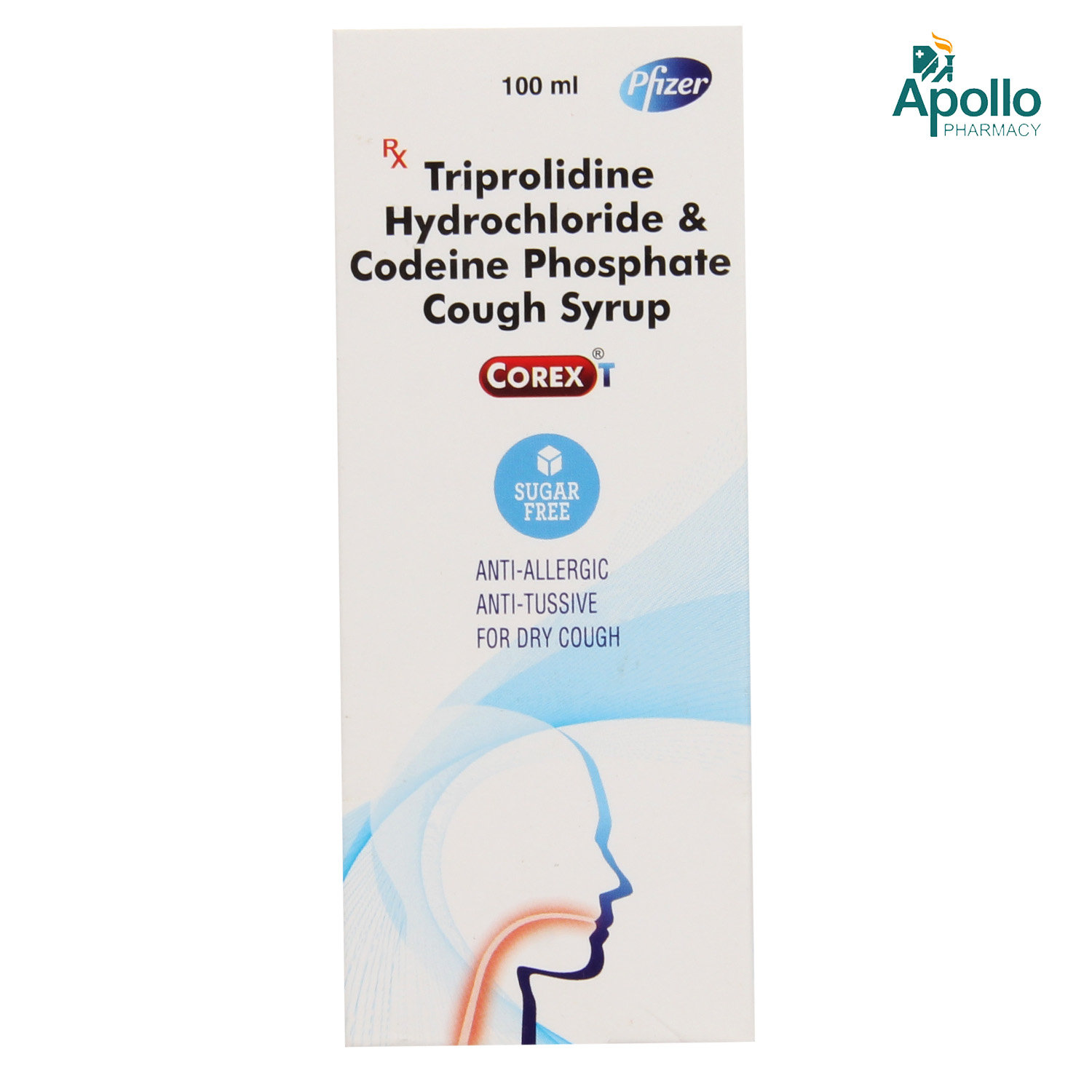Triprolidine
About Triprolidine
Triprolidine belongs to the class of antihistamines. It is used to provide relief from symptoms of allergy, hay fever, and a common cold, such as a runny nose, sneezing, itchy or watery eyes, and a blocked nose. The common cold is an infection of the nose and throat caused by viruses.
Triprolidine contains Triprolidine as an active ingredient, which belongs to the class of sedating antihistamines. It works by blocking the action of histamine, a substance responsible for causing allergic reactions.
Triprolidine may cause side effects such as dizziness, drowsiness, nervousness, dry mouth, constipation, anxiety, and trouble sleeping. If these side effects persist for a longer duration, consult your doctor immediately. Take Triprolidine as prescribed by your doctor.
Do not use Triprolidine if you are allergic to it or any other contents in it. Inform your doctor if you have any history of liver/kidney disease, epilepsy, asthma, breathing problems, and heart disease before taking Triprolidine. Consult your doctor if you are pregnant or breastfeeding before starting Triprolidine. Triprolidine is not recommended for use in children below 6 years of age as the safety and efficacy are not established.
Uses of Triprolidine
Medicinal Benefits
Triprolidine contains Triprolidine as an active ingredient, which belongs to the class of sedating antihistamines. It works by blocking the action of histamine, a substance responsible for causing allergic reactions. This helps provide relief from allergic symptoms such as sneezing, running nose, watery eyes, itching, swelling, congestion, or stiffness.
Directions for Use
Storage
Side Effects of Triprolidine
- Dizziness
- Drowsiness
- Nervousness
- Trouble sleeping
- Anxiety
- Fast or uneven heart rate
- Mood changes
- Dry mouth
- Constipation
Drug Warnings
Let your doctor know about your complete medical and medication history to rule out any side effects. Triprolidine is contraindicated in patients who have glaucoma, gastrointestinal problems, especially stomach or duodenal ulcers, prostrate problems, bladder problems, or taking monoamine oxidase inhibitor (MAOI). Triprolidine may cause drowsiness, so do not take alcohol as it causes excessive drowsiness. Also, do not drive or operate heavy machinery if you are drowsy. Caution should be exercised if you have any history of liver/kidney disease, epilepsy, asthma, breathing problems, and heart disease while taking Triprolidine. This medicine is not recommended for use in children below 6 years of age as the safety is not established. Limited information is available for the use of the medicine in special populations. Hence, inform your doctor if you are pregnant or breastfeeding before taking the medicine.
Drug Interactions
Drug-Drug Interactions: Triprolidine may interact with other antihistamines (cetirizine, diphenhydramine), MAO inhibitors (moclobemide, phenelzine, tranylcypromine), sedatives (zolpidem), tricyclic antidepressants, opioid analgesics, hypnotics, anti-epileptic (phenytoin), etc.
Drug-Food Interactions: Consumption of alcohol increases the risk of side effects.
Drug-Disease Interactions: Triprolidine should be used with caution in patients with uncontrolled asthma, high blood pressure, heart diseases, or hyperthyroidism (overactive thyroid).
Drug-Drug Interactions Checker List:
Safety Advice

Alcohol
unsafeAlcohol consumption may increase the risk of side effects. Hence, avoid consuming alcohol while on treatment with Triprolidine.

Pregnancy
cautionIf you are pregnant or planning pregnancy, inform your doctor before taking Triprolidine. Your doctor may prescribe this medicine if the benefits outweigh the risks.

Breast Feeding
cautionIf you are breastfeeding, inform your doctor before taking Triprolidine. Your doctor may prescribe this medicine if the benefits outweigh the risks.

Driving
unsafeTriprolidine may cause drowsiness. So, avoid driving or operating heavy machinery while using this medicine if you are drowsy.

Liver
cautionIf you have a history of liver disease, inform your doctor before taking Triprolidine. Your doctor may adjust the dose of this medicine or prescribe a suitable alternative based on your condition.

Kidney
cautionIf you have a history of kidney disease, inform your doctor before taking Triprolidine. Your doctor may adjust the dose of this medicine or prescribe a suitable alternative based on your condition.

Children
cautionTriprolidine is not recommended for use in children below 6 years of age as the safety and efficacy are not established.
Habit Forming
Diet & Lifestyle Advise
- Staying hydrated is vital for those with a cough or cold. Drinking liquids at room temperature can alleviate cough, runny nose, and sneezing.
- The immune system is affected by stress and raises the risk of being sick. An individual can exercise regularly, meditate, do deep breathing, and try progressive muscle relaxation techniques to relieve stress.
- To stay fit and safe, try to sleep at least 8 hours each night.
- It is advised to avoid contact with known allergens (allergy-causing agents) such as pollen, dust, or food items known to cause allergies to you.
- Maintain personal hygiene and keep your surroundings clean.
Patients Concern
Disease/Condition Glossary
Common cold: The common cold is an infection caused by viruses, mainly 'rhinovirus' affecting your nose and throat (upper respiratory tract). In most cases, cold symptoms are recovered within a week or ten days. However, symptoms might last longer in people who smoke or are exposed to allergens like dust, pollutants, etc. It mostly occurs due to chemicals, air pollution, pet danders, dust, pollen hairs, seasonal allergies like hay fever, etc. Common cold symptoms include stuffy or runny nose, sore throat, cough, congestion, mild body pain, mild headache, sneezing, low-grade fever, and feeling unwell (malaise).
FAQs
Triprolidine contains Triprolidine, which works by blocking the action of histamine, a substance responsible for causing allergic reactions.
Triprolidine should not be used if you have taken antidepressants in the last 14 days. Inform your doctor about all the prescription and non-prescription medicines and dietary supplements you are taking to identify any interactions with Triprolidine.
Triprolidine may cause drowsiness (sleepiness). So, you can take Triprolidine in the nighttime if you are experiencing severe drowsiness. If you are drowsy, you should refrain from activities that require you to stay alert, such as driving or operating heavy machinery.




